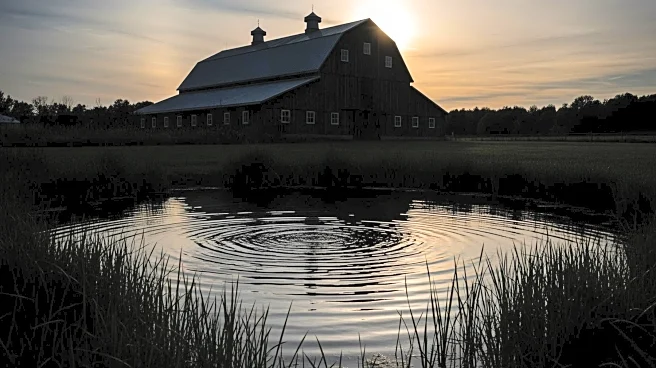What's Happening?
In the late 19th century, the Bangs sisters, Lizzie and May, were prominent figures in the spiritualism movement in Chicago. They conducted seances and claimed to communicate with spirits through slate-writing and spirit cabinets. Their practices attracted
significant attention, leading to large gatherings at venues like the Princess Opera House. However, their methods were controversial, and in April 1888, Chicago police disrupted one of their seances, revealing May Bangs disguised as a spirit. The sisters faced charges of obtaining money under false pretenses and operating without a license. Despite these setbacks, they continued their spiritualism activities, adapting their methods to include spirit portraits, which purportedly depicted deceased loved ones.
Why It's Important?
The Bangs sisters' activities highlight the widespread interest in spiritualism during a period of American history marked by trauma and loss, particularly following the Civil War. Their ability to attract large audiences and wealthy patrons underscores the societal need for comfort and connection with the afterlife. However, their exposure as frauds by police and skeptics like Col. John C. Bundy and David Abbot reveals the tension between genuine belief and exploitation. This case exemplifies the challenges faced by spiritualism in maintaining credibility and the impact of public skepticism on such movements.
What's Next?
Following the police intervention, the Bangs sisters faced legal challenges, but they continued their spiritualism practices, targeting wealthy individuals for spirit portraits. The exposure of their fraudulent methods by skeptics like David Abbot and the subsequent interest in spiritualism during World War I suggest a cyclical pattern of belief and skepticism. The sisters' story foreshadows the later efforts of figures like Harry Houdini to debunk spiritualism, indicating ongoing scrutiny and debate over the legitimacy of such practices.
Beyond the Headlines
The Bangs sisters' story reflects broader cultural and ethical questions about the exploitation of grief and the commercialization of spiritual beliefs. Their ability to adapt their methods to changing public interests highlights the dynamic nature of spiritualism and its intersection with societal needs. The ethical implications of their practices, particularly in targeting vulnerable individuals, continue to resonate in discussions about the boundaries between belief and deception.















